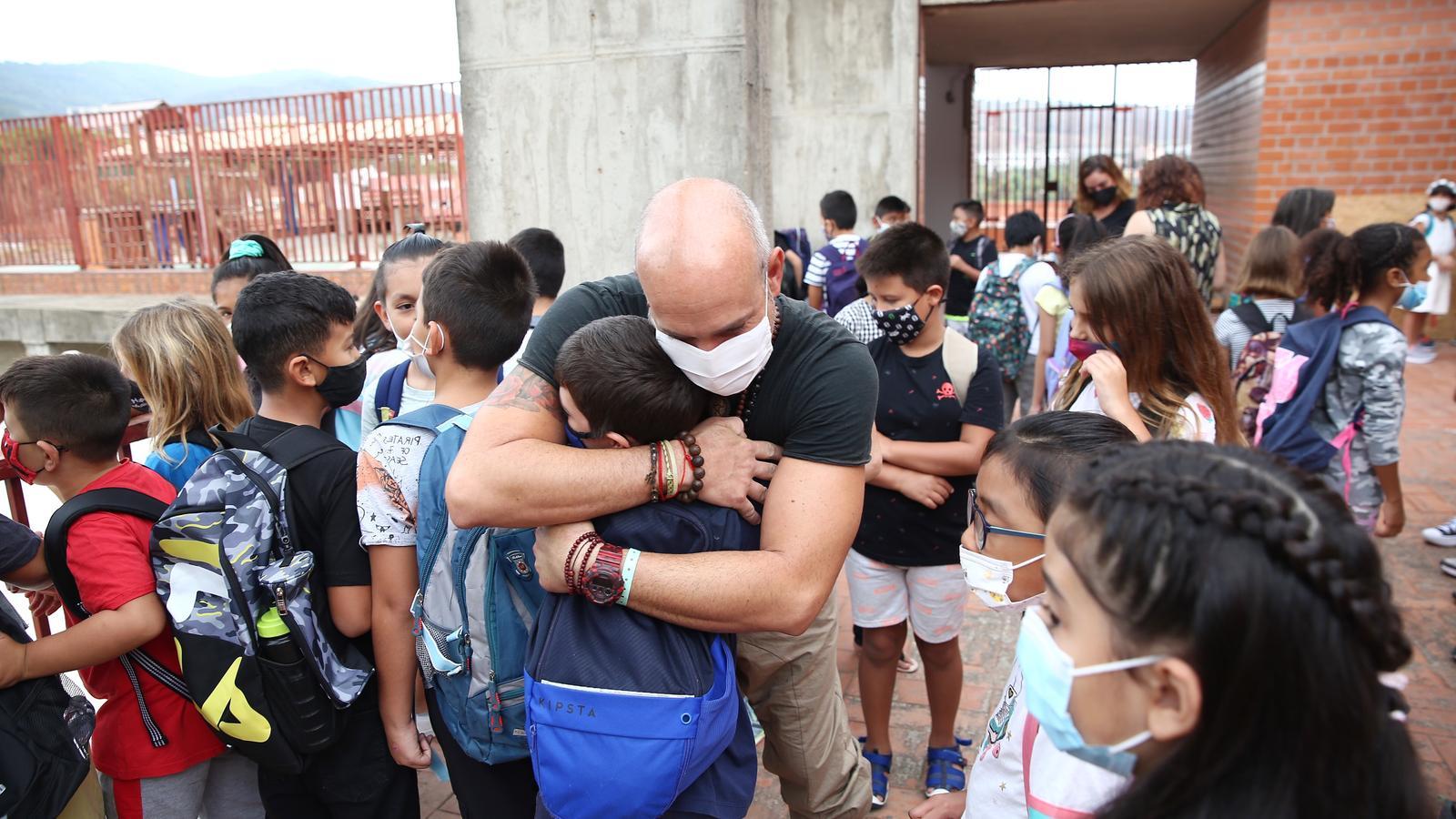Second school year in the pandemic: the five key points that will mark it
Schools begin with few changes to protocols and an urgent need to address students' mental health


BarcelonaThe second school year of the pandemic begins this Monday with the same energy and much less uncertainty than last September. A year ago, ARA's headline ran: "Start of the most difficult of school years", after six months with schools closed and a lockdown which was especially tough for children. The doubts and fears over the reopening marked the first stages of the year, which, despite lockdowns, ended with a not inconsiderable success: schools opened from the first day to the last. Not all countries around us can say the same.
But in one year many things have changed. The most important is that almost three out of every four people in Catalonia have been vaccinated against covid, and this will have a direct impact on classrooms and health protocols. Schools will also feel the demographic drop - there will be 2,000 fewer students in total - as well as the harmful emotional consequences of the pandemic. There are other things that have not changed: the education sector is still waiting for more funding for kindergartens and a decree for inclusive schools. These are the five keys that will mark the 2021/2022 school year.
Measures against covid
The main change is that the vaccinated will not have to self-isolate
The main novelty is that students who are fully vaccinated will not have to isolate when a positive result is detected in their class. While last year the whole group was sent home when a case was detected, this year vaccinated students can continue to go to class and only those who test positive and those who are not vaccinated will have to isolate. As only the over-12s are eligible for vaccines, the change will only be felt in secondary schools. There will be other changes too: students' temperature will no longer be taken at the entrance and relatives will be allowed to enter the schools. On the other hand, masks will remain compulsory inside the classroom and groups bubbles will be maintained, although students will be able to remove their mask in the playground if they play only with their bubble group. Even so, the protocols announced may change, depending on how the pandemic progresses.
Fewer students in the classrooms
There will be more teachers and more state schools
This Monday, 1,561,627 students will start classes, 2,173 fewer than last year. The fall in the birth rate means the number of children in kindergarten continues to fall (6,000 fewer children) as does the number in primary school (9,500 less) and, for the first time ever, secondary school (3,800 fewer). On the other hand, the number of baccalaureate students remains stable, while the number of Vocational Education and Training (VET) students has risen by almost 10,000.
Despite the fall in the number of students in the system, staff numbers have increased, maintaining the 8,200 covid reinforcements hired last year and hiring 1,200 new workers, most of whom are teachers, although there are also educational care staff or administration workers. This will allow, for example, that more than half of the classes in schools in Barcelona have under 30 students.
This Monday 21 new public schools will open their doors: three are newly created, eleven are secondary schools, five have changed ownership and become part of the state network and two are specific vocational training centres.
VET
Thousands of students are waiting for a place due to the increase in demand in courses the government is seeking to promote
The Government wants to promote Vocational Education and Training. To begin with, it has already managed to get students interested and committed, after years as a lesser-rated option. But now it is necessary to manage these expectations: at the moment, there are thousands of students who are still waiting for a place, after the demand for medium-level studies increased by 23% from one academic year to the next. Last week, the Department for Education announced that it will refer students without a place to the Open Institute of Catalonia so they can take a distance learning course. But the remedy, say the unions, may end up being worse than the disease, because leaving students of online courses are more likely to drop out.
More emotional education
A year to improve the approach to mental health
Last year was an educational emergency. This year will be an emotional emergency to help heal the wounds caused by the pandemic: more eating disorders, more difficulties in socialising, more anxiety and depression, and more suicide attempts have been detected. To preserve emotional well-being, the department is putting in place a mental health plan, the first measure of which will be to send a questionnaire to all students to find out their state of mind.
Course changes?
A new curriculum for baccalaureate curriculum and more investment in kindergartens
During this academic year the new curriculum for baccalaureate will be applied and, if political negotiations go well, there will be new budgets, which should allow a move towards free nursery schools and improving funding to charter schools committed to the fight against segregation. It is also urgent to continue work on the decree for inclusive schools, with more allocations to schools to meet the needs of students with special educational needs.
